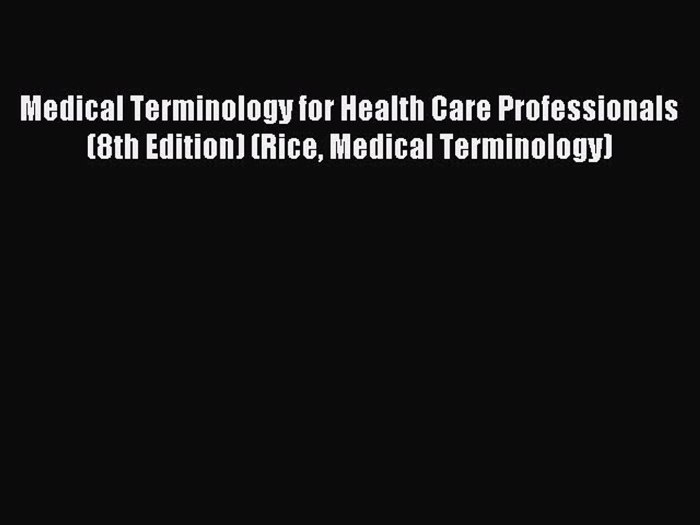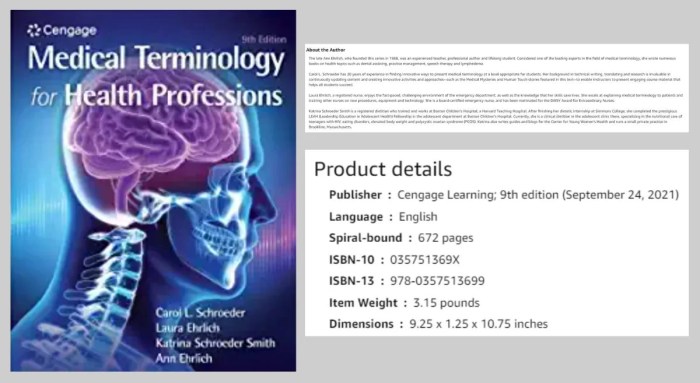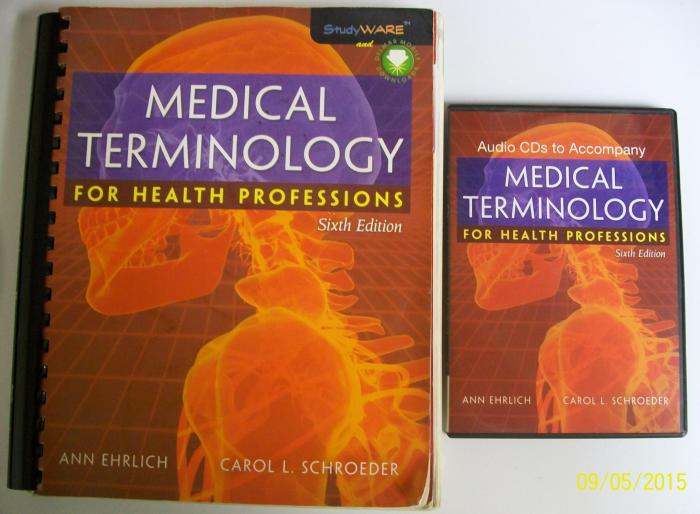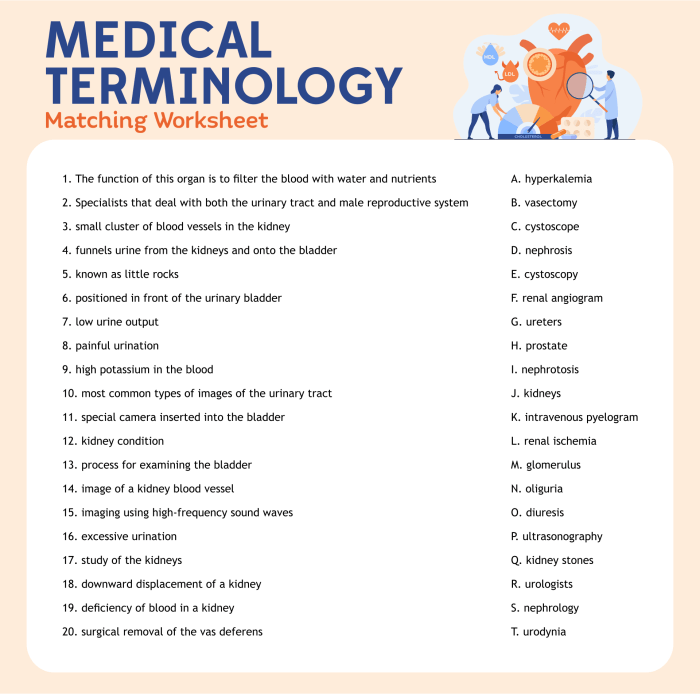Medical terminology for health professions 9th edition answer key – Embark on a journey through the vast landscape of medical terminology with the authoritative Medical Terminology for Health Professions, 9th Edition Answer Key. This indispensable resource unlocks the intricacies of medical language, empowering healthcare professionals with the knowledge to communicate effectively and provide exceptional patient care.
Within these pages, you’ll find a comprehensive exploration of anatomical, physiological, pathological, pharmacological, and other essential medical terminology. The book’s structured organization and thorough explanations make it an invaluable companion for students and practitioners alike.
Introduction
Medical terminology is the specialized language used by healthcare professionals to describe the human body, its functions, and diseases. It is essential for effective communication among healthcare providers, ensuring accurate and standardized understanding of patient information.
Key Features of Medical Terminology for Health Professions, 9th Edition: Medical Terminology For Health Professions 9th Edition Answer Key
The 9th edition of Medical Terminology for Health Professions has been revised and updated to reflect the latest medical terminology standards and practices. Key features include:
- Comprehensive coverage of anatomical, physiological, pathological, pharmacological, and diagnostic terminology
- Clear and concise definitions with pronunciations and etymologies
- Extensive exercises and practice questions to reinforce understanding
- Appendices with medical abbreviations, acronyms, and a glossary
Anatomical Terminology

Directional Terms
- Anterior: Front
- Posterior: Back
- Superior: Above
- Inferior: Below
- Medial: Toward the midline
- Lateral: Away from the midline
Body Planes
- Sagittal plane: Divides the body into left and right halves
- Frontal plane: Divides the body into anterior and posterior halves
- Transverse plane: Divides the body into superior and inferior halves
Regional Divisions, Medical terminology for health professions 9th edition answer key
- Axial: Head, neck, and trunk
- Appendicular: Limbs
Physiological Terminology

Physiological terminology describes the functions of the body, including:
- Cardiovascular system: Heart, blood vessels, and blood
- Respiratory system: Lungs and airways
- Digestive system: Mouth, esophagus, stomach, intestines, and liver
Pathological Terminology

Pathological terminology describes diseases and disorders, including:
- Inflammation: -itis
- Infection: -osis
- Cancer: -oma
Pharmacological Terminology
Pharmacological terminology describes drugs and their effects, including:
- Drug names: Generic and trade names
- Dosages: Amount of drug given
- Routes of administration: How the drug is given
Medical Abbreviations and Acronyms
Medical abbreviations and acronyms are used to save time and space in medical records. Examples include:
| Abbreviation | Meaning |
|---|---|
| BP | Blood pressure |
| ECG | Electrocardiogram |
| MRI | Magnetic resonance imaging |
Exercises and Practice Questions
The book includes a variety of exercises and practice questions to help students reinforce their understanding of medical terminology, such as:
- Multiple choice questions
- Matching exercises
- Fill-in-the-blank exercises
Appendices

The appendices provide additional resources for students, including:
- Glossary of medical terms
- Index of terms
- Appendix on medical ethics
FAQ Guide
What is the purpose of medical terminology?
Medical terminology provides a standardized language for healthcare professionals to communicate accurately and effectively about patient care.
How does the 9th edition of Medical Terminology for Health Professions differ from previous editions?
The 9th edition includes updated content, new exercises, and a revised appendix on medical ethics.
What are the key features of anatomical terminology?
Anatomical terminology uses directional terms, body planes, and regional divisions to describe the human body.
What is the role of physiological terminology in healthcare?
Physiological terminology helps healthcare professionals understand and describe the functions of the human body.